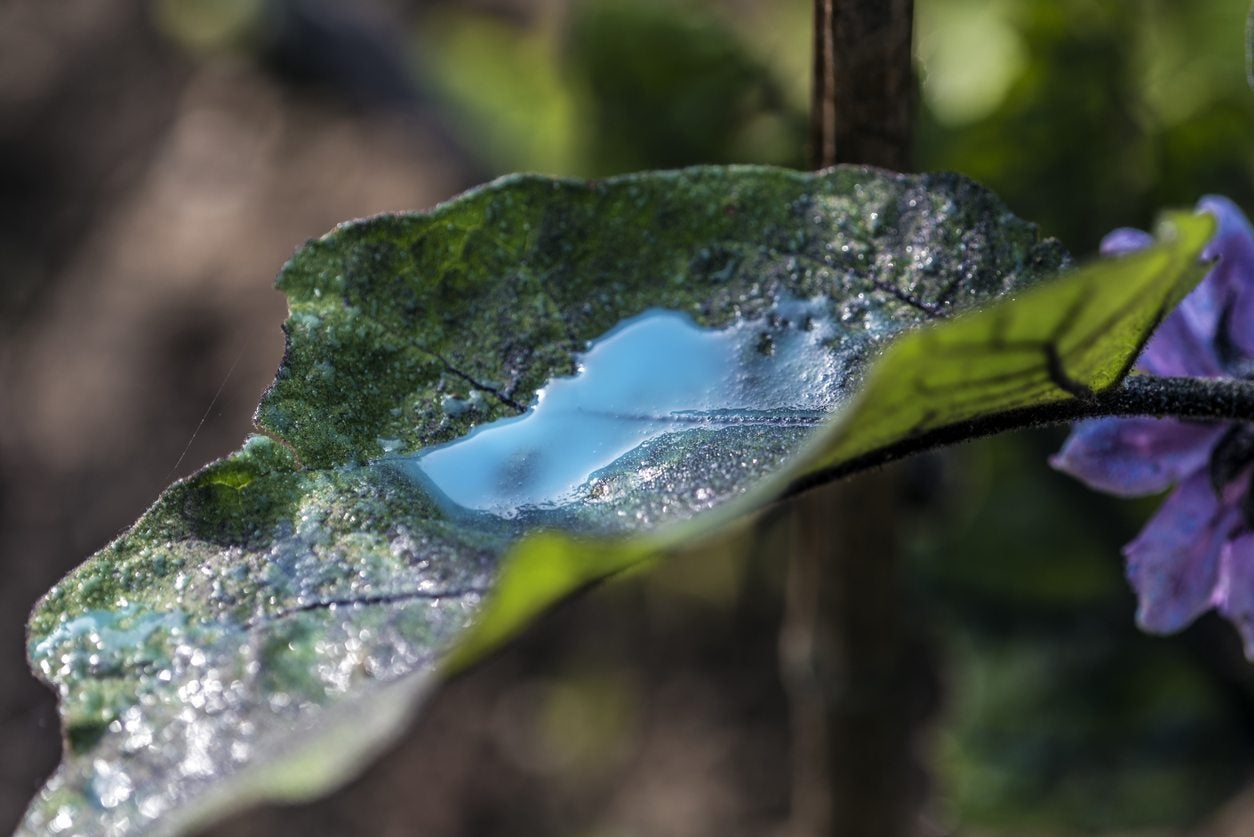Copper In The Garden: Tips On Using Copper In Gardening


Most serious gardeners know what copper compounds can do for plants as a fungicide and bactericide, but how about using copper for slug control? Using copper-based pesticides provides a safe, non-toxic way to control soft-bodied, slimy pests that can eat their way through your vegetable patch and cause considerable foliar damage to ornamentals. Organic and sustainable gardeners know that using copper in gardening repels slugs and snails without introducing harmful chemicals to the landscape. There are easy copper barriers to purchase, or you can try a topical application of Bordeaux mixture to halt those munching pests in their tracks.
Using Copper in Gardening
Copper compounds are interesting substances that release ions that are toxic to some fungi and bacteria because they destroy proteins in plant tissue. This may sound like a bad thing, and indeed it is in high concentrations, but with careful application and management, copper can be an effective tool against blights, fungal issues, and bacterial disease. In the mid 1800s, it was discovered rather by accident that a mixture of copper sulfate with lime was an effective deterrent to downy mildew on grapevines. Copper sulfate easily dissolves in water and when combined with lime, which stabilizes the copper, it is safe to use on plants with little fear of tissue injury. New formulas that use copper as a fungicide use a form that is less soluble and fixed, causing even less chance of damage to your crops. Similarly, trial and error discovered that copper-based pesticides had some control over slugs and snails. It is believed that contact with copper reacts with the insect's slime, creating something similar to an electric shock and disrupting the nervous system. Is copper safe for plants? Physical copper barriers pose no significant hazards to your garden, but some caution should be used when using a sprayed copper formula.
Forms of Copper for Slug Control
The easiest forms to use are copper barriers. These are physical screens or foils made of copper that you erect vertically around the area to be protected. These can only protect a bed or planter box that is slug free, including eggs. To ensure that the area has no fenced-in snails or slugs, cover it with black plastic and allow solar energy to "cook" out any unwanted pests. Make sure to remove any plants before applying this treatment. Another form of copper to use against these munching invaders is the Bordeaux mixture. This is a copper sulfate and lime concoction that may be brushed onto woody stems and trunks of plants to provide protection for up to a year. Use caution when applying and follow mixing and application instructions.
How to Use Copper Based Pesticide Remedies
Copper barriers come in a variety of forms. Copper tape or foil is applied around trunks, boxes, and containers. Staple it vertically around the area to be contained. Copper screens should be set under the soil a couple of inches (5 cm.) to prevent slugs and snails from burrowing under the screen. Purchase a screen that is at least 4 inches (10 cm.) wide. To band tree and large shrub trunks, wrap the foil or tape around the stem, leaving several inches (8 cm.) at each end. Fasten with a clip and tighten it up several times per year to allow the trunk to grow and still keep the stem covered by the copper. Use a vinegar solution to clean tarnished or dirty copper barriers and ensure their continued effectiveness. Choosing these types of barriers allows for long-lasting control and non-toxic safety and prevents tissue damage to plants by inappropriate application of liquid formulas. To safely use a Bordeaux solution, choose one that is already mixed and apply the treatment brushed onto the woody stems of plants, 4 to 6 inches (10-15 cm.) up from the soil line. If you add white latex paint to the mixture it will adhere and last longer. Copper solutions may be the answer you are looking for in good slug and snail control.
Sign up for the Gardening Know How newsletter today and receive a free copy of our e-book "How to Grow Delicious Tomatoes".

Bonnie Grant is a professional landscaper with a Certification in Urban Gardening. She has been gardening and writing for 15 years. A former professional chef, she has a passion for edible landscaping.